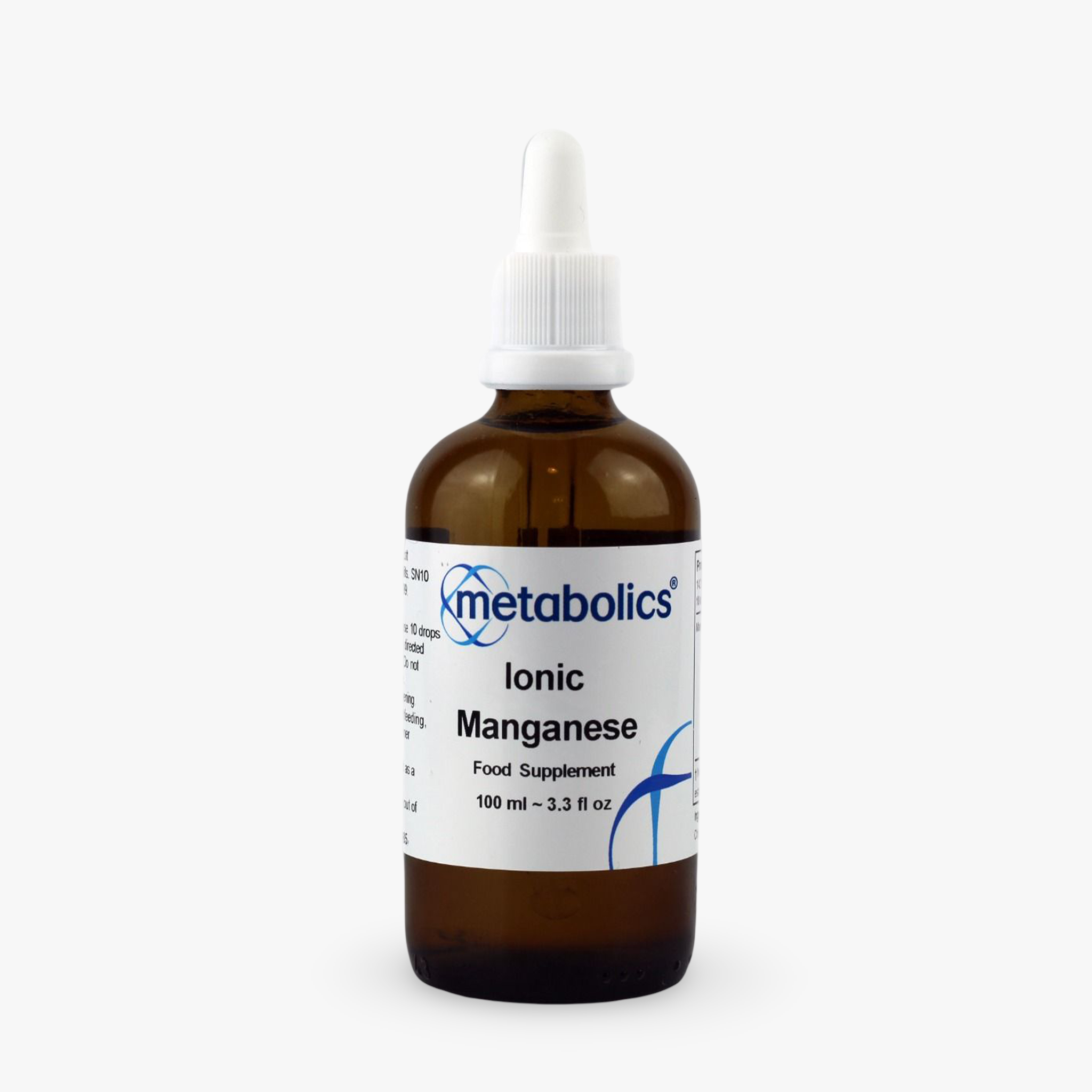
Metabolics Ionic Manganese
Couldn't load pickup availability
Pickup currently unavailable at Shop location
Pairs well with
Description
Manganese is an essential mineral but in high doses may become toxic. It is found in fruits such as pineapple, nuts and whole-wheat grains. It is also found in drinking water.
Benefits of Manganese
- Manganese contributes to energy yielding metabolism. Manganese is needed for activating enzymes that metabolise carbohydrates, cholesterol and amino acids. Pyruvate carboxylase a manganese dependent enzyme, is needed for gluconeogenesis (production of energy in absence of carbohydrates).
- Manganese contributes to the maintenance of normal bones. Manganese is a cofactor in the enzymes glycosyltransferases which are needed to form healthy bone and cartilage.
- Manganese contributes to the normal formation of connective tissue. Manganese deficiencies can result in abnormal cartilage formation.
- Manganese contributes to the protection of cells from oxidative stress. Manganese forms a part of many enzymes. One of these is manganese superoxide dismutase (MnSOD), the main antioxidant enzyme in the mitochondria produced when mitochondria make molecules of ATP (energy); it allows the conversion of superoxide free radicals to water.
Best Before End: 09/2025
Suggested Use
Ingredients
If you have any questions, you are always welcome to contact us. We'll get back to you as soon as possible, within 24 hours on weekdays.
-
Shipping Information
Use this text to answer questions in as much detail as possible for your customers.
-
Customer Support
Use this text to answer questions in as much detail as possible for your customers.
-
FAQ’s
Use this text to answer questions in as much detail as possible for your customers.
-
Contact Us
Use this text to answer questions in as much detail as possible for your customers.
FAQs
Please read our FAQs page to find out more.
When will my order ship?
We aim to dispatch all orders placed before 3pm, on the same day.
How long will my order take to arrive?
Tracked 48 (£3.95): End-to-end tracking for peace of mind. Get your parcel delivered within two to three working days.
Tracked 24 (£5.50): Tracking to delivery point and next-day delivery.
Do you ship internationally?
Yes, we do! We use both Royal Mail & DHL for international shipments.
If your country does not show at checkout, please reach out to us and we can manually arrange a shipment.
What are your most popular products?
You can find our bestselling products here.


